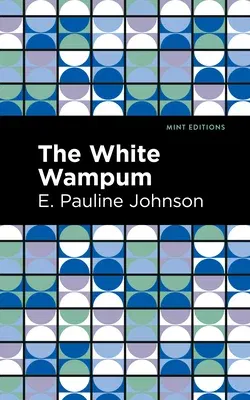The White Wampum (1895) is the debut poetry collection of E. Pauline
Johnson. Originally published in London, The White Wampum launched her
career as one of Canada's most distinguished artists. Revered as one the
foremost indigenous poets of her time, Johnson was a prolific writer
whose works explored her Mohawk heritage while shedding light on the
racism and persecution faced by indigenous peoples across North America.
The White Wampum captures Johnson's range as a poet in tune with the
Romantic tradition without erasing her dualistic sense of identity as a
woman of Mohawk and English heritage. Choosing to emphasize the former,
Johnson, who also went by Tekahionwake, her great-grandfather's name,
adopts the persona of a Mohawk wife devoted to her husband, a powerful
warrior: "I am Ojistoh, I am she, the wife / Of him whose name breathes
bravery and life / And courage to the tribe that calls him chief. / I am
Ojistoh, his white star, and he / Is land, and lake, and sky-and soul to
me." When members of the rival Huron tribe capture Ojistoh, their plan
for retribution fails to account for her own strength and willpower.
Outnumbered and unarmed, she remains certain she will return to her
husband alive. In "The Camper," Johnson invokes the beauty and
simplicity of life on the plains, erasing for a moment all distinction
between man and god, heaven and earth: "Night neath the northern skies,
lone, black, and grim: / Nought but the starlight lies twixt heaven, and
him. / Of man no need has he, of God, no prayer; / He and his Deity are
brothers there." With a beautifully designed cover and professionally
typeset manuscript, this edition of E. Pauline Johnson's The White
Wampum is a classic of Canadian literature reimagined for modern
readers.


